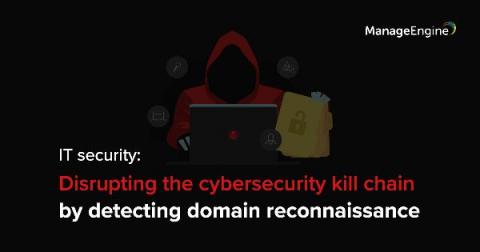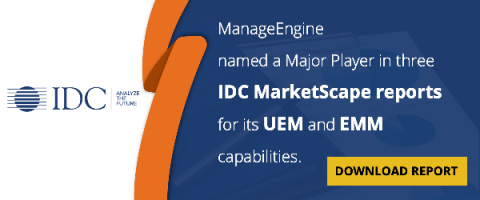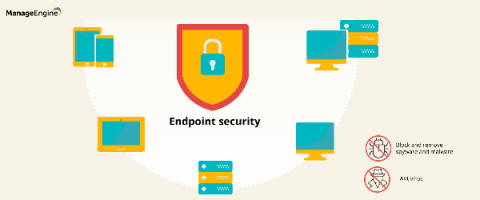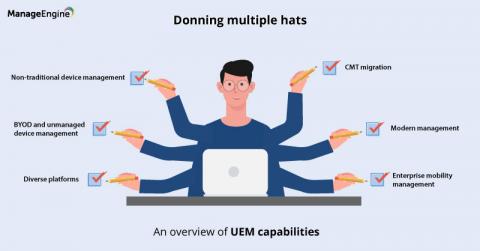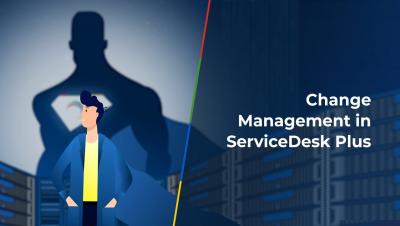Operations | Monitoring | ITSM | DevOps | Cloud
ManageEngine
IT security: Disrupting the cybersecurity kill chain by detecting domain reconnaissance
Cyberattacks are a growing threat, and organizations are investing time and money in security strategies to make certain that their infrastructures are secure. Active Directory (AD) is a constant target for compromise, as it’s at the core of any organization’s security — it handles authentication and authorization for all users in an organization.
Meet a Major Player in the UEM and EMM industries
We are delighted to share that market research and advisory firm, IDC, has recognized Zoho/ManageEngine in the following three IDC MarketScape reports: Zoho/ManageEngine has also been named a Leader in the IDC MarketScape. In these reports, the IDC MarketScape identified 18 providers and evaluated them in the capabilities, strategy, and market presence.
Five worthy reads: Mastering cybersecurity with AI and machine learning
Five worthy reads is a regular column on five noteworthy items we’ve discovered while researching trending and timeless topics. This week, we discuss the escalating significance of AI and machine learning in IT security space.
Endpoint security: The key to protecting your enterprise
To operate efficiently, businesses today use numerous devices such as laptops, desktop computers, and mobile devices. Securing all these devices—collectively called endpoints—significantly improves the overall security of your enterprise’s IT network. This blog can help you get started with endpoint security. To begin with, let’s define endpoint security.
9 essential UEM capabilities that empower your IT administration
Unified endpoint management (UEM) is an IT best practice and strategy for securing and controlling desktop computers, laptops, smartphones, and tablets in a connected, secure manner from a single console. It’s increasingly important for enterprises today because of the prevalence of corporate-owned, personally-enabled (COPE) devices, and bring your own devices (BYOD) policies.
Unpatched zero-day vulnerability in Internet Explorer exploited in the wild
Barely a week after Patch Tuesday, internet security company Qihoo 360 has discovered yet another vulnerability in Internet Explorer (IE), this time due to a remote code execution vulnerability in the jscript.dll scripting engine. The vulnerability, identified as CVE-2020-0674, is considered Critical for IE 11, and Moderate for IE 9 and IE 10.



